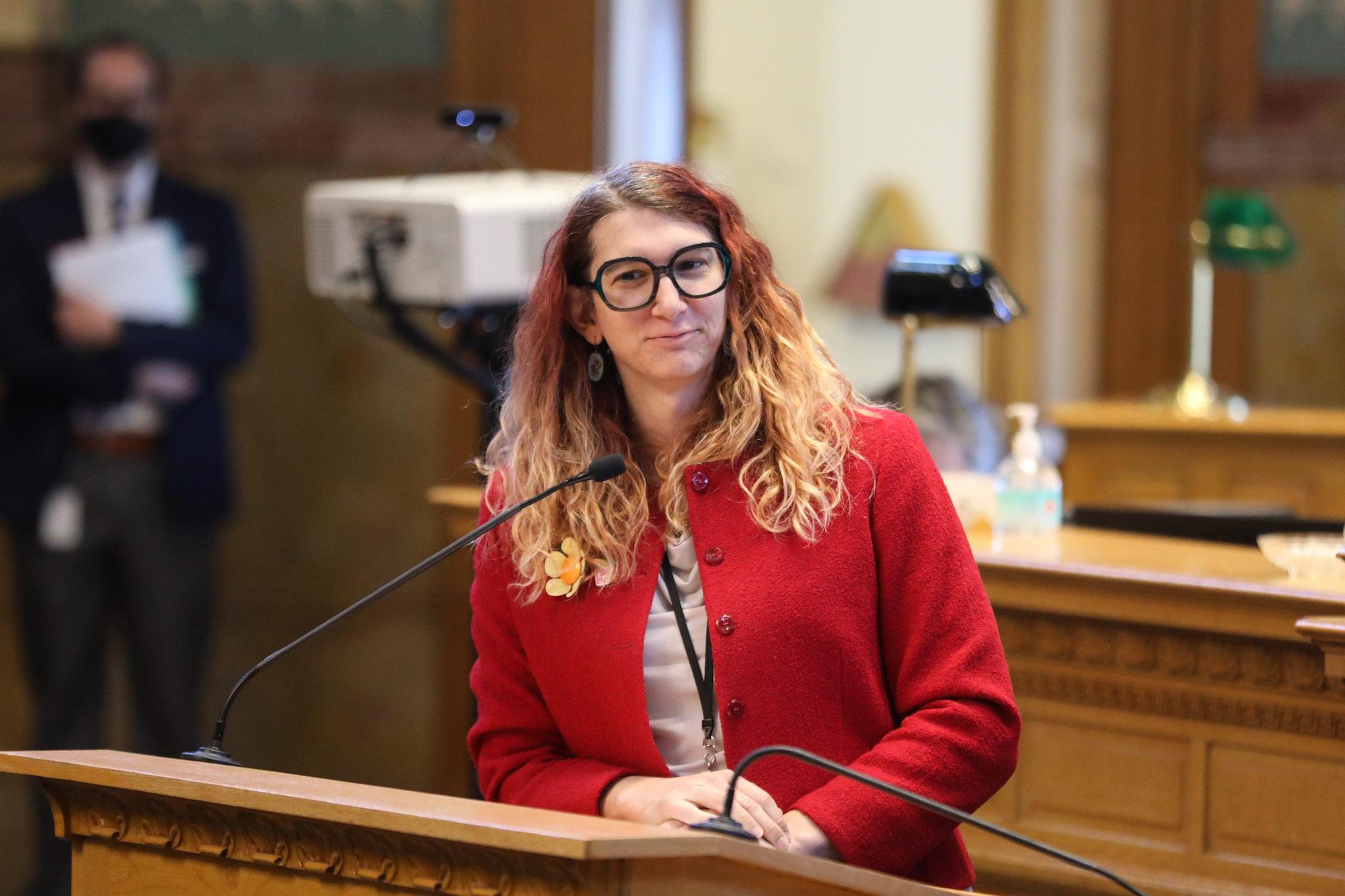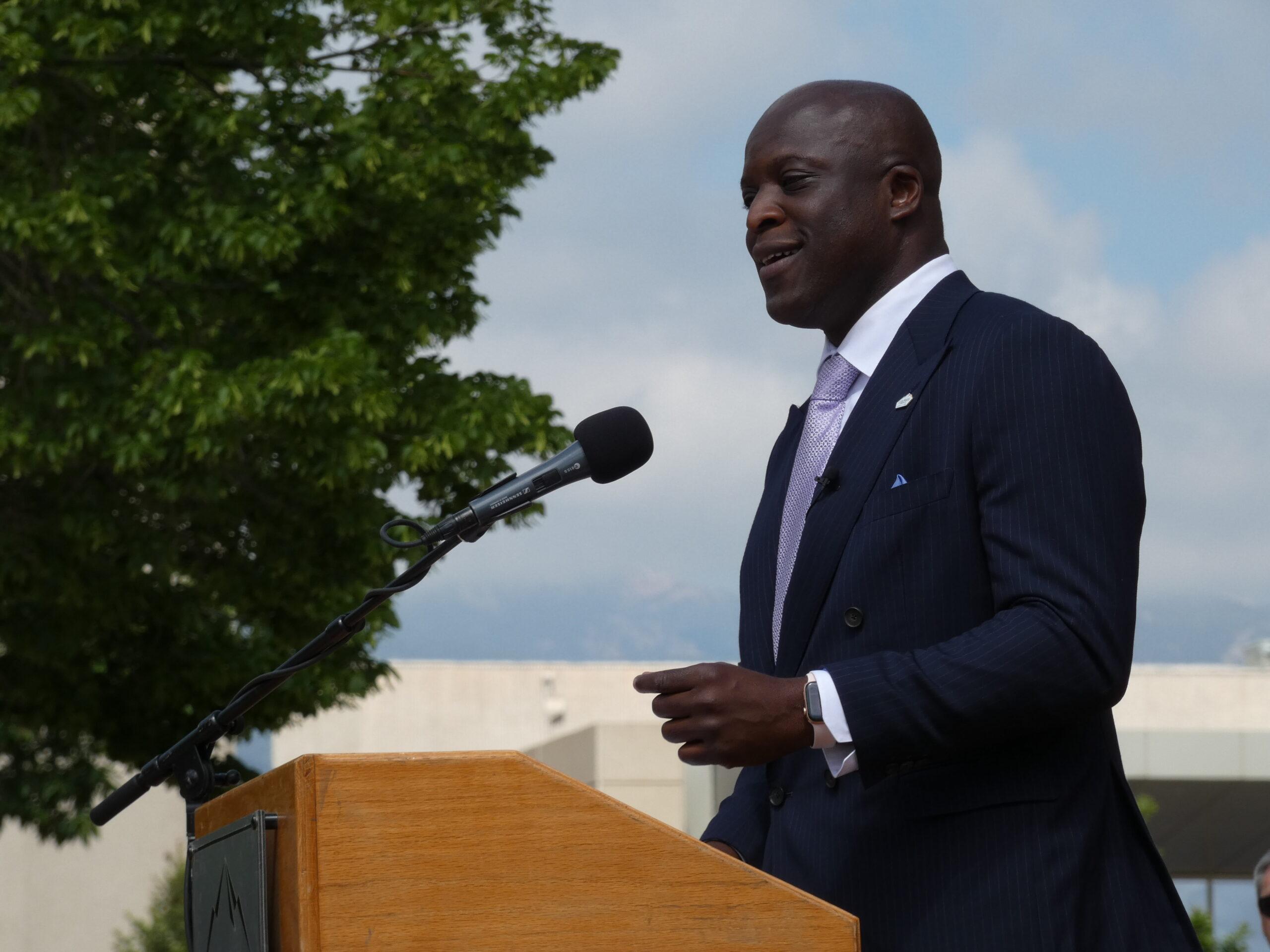
When lawmakers return to the state capitol in January for the next legislative session, Democrats plan to address legal protections for transgender individuals, parents of transgender youth and providers of gender-affirming care.
Democratic state Rep. Brianna Titone said she thinks it’s critical to secure protections in Colorado given restrictions in states like Texas, where the attorney general issued a nonbinding legal opinion equating gender-affirming medical care to child abuse and the state has opened child welfare investigations into parents of transgender children.
Numerous states across the country are moving to ban gender-affirming care for minors, including several that neighbor Colorado.
Colorado’s anti-discrimination laws already cover trans people, but Titone said the state needs to do more to protect health care providers and families, including those who may come from out of state.
She said the goal is that “any provider that might be administering gender-affirming care for those youth are not going to be prosecuted by an outside entity, or any of the parents who are coming here to bring their kids to get the care that they need, the health care that they need, that they're not punished or outed for the care that they sought outside of their state.”
The idea is similar to an executive order Gov. Jared Polis issued this summer to protect abortion providers and people traveling to the state for the procedure.
According to writings from Moira Szilagy, the president of the American Academy of Pediatrics, there is strong consensus among the most prominent medical organizations that “evidence-based, gender-affirming care for transgender children and adolescents is medically necessary and appropriate. It can even be lifesaving.” Szilagy noted that it doesn’t necessarily mean hormone therapy or surgery.
Titone is Colorado’s first openly transgender state lawmaker, and has been a strong advocate for LGBTQ rights during her time at the legislature. She believes it’s more important than ever to have policies in place to help transgender individuals of all ages feel safe, and able to thrive.
“We want to remind people that trans people are vulnerable and trans people often feel unsafe because of the rhetoric. All of the talk, especially on social media, that's been targeting trans people and especially trans kids — they are fearful for their lives,” she said in an interview prior to the shooting at Club Q, an LGBTQ nightclub in Colorado Springs that killed five people, two of whom were transgender.
During Titone’s first bid for reelection in 2020 she personally faced anti-LGBTQ messaging, including ads and robocalls that accused her of “attacking law enforcement and sexualizing children” without providing any context, and allegations that she was “too dangerous for Colorado families.”
Some voters said those efforts had the opposite effect and simply reinforced their support for Titone, who was successfully reelected in 2020 and 2022.
Titone said the details surrounding the scope and mechanism of her proposed transgender rights bill are still being figured out.
“We're working with the (Colorado) Attorney General and lots of other experts in the legal aspect of it to make sure that we are not crossing any constitutionality issues,” she explained. “(We) want to make sure that we're honoring the Constitution, but also putting up protections for the providers and the people seeking the care.”
She had floated the idea late last legislative session and Democratic leaders said they were open to it, but that there wasn’t enough time to get something in place.
Colorado is already among the states with strong protections for transgender people. In 2019 the lawmakers passed a bill to make it easier for transgender people to change their birth certificates to reflect their gender identity, as well as a ban on conversion therapy for minors.









